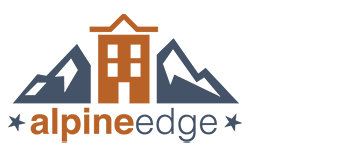HOA Glossary and Definitions
There are a lot of moving parts in an HOA. The best place to start learning how an HOA works is to understand the jargon used by HOA’s and HOA managers. In future articles, each of these major topics will be covered in more detail. Let’s start by looking at the governing Board, beginning with the Association Manager.
Association Manager
The role of the Association Manager is to advise and provide administrative, managerial, and operational counsel to the Association governing body. The Association Manager is expected to:
- Exhibit professionalism and loyalty to the principal (the Board)
- Exercise diligence in performing duties on the principals’ behalf
- Account for financial activities covered by the Management Agreement
- Perform onsite property inspections
- Solicit and evaluate bids for association services
- Supervise maintenance activities and contractor performance
- Oversee and authorize payment for primary association services
- Know and abide by the Association’s Bylaws, recognizing the State agency that supervises the community associations
The Board of Directors
The Association Manager works with the Board of Directors to ensure that HOA members are following HOA rules and benefiting from being part of the HOA. Depending on the management agreement, some of the following responsibilities can be turned over to a managing company.
President
- Chief executive officer and leader of the Association
- Presides at all meetings of the Board and membership
- Executes legal documents on behalf of the Association
- Sets meeting agendas and controls all meetings
- Represents the Board before the residents
- May have nominating, if not appointment, responsibility for all committees
Vice President
- Performs all of the duties of the president in his/her absence
- Typically shares some of the burdens of the president regarding appearances, liaison, public hearings, etc.
- Usually assigned liaison responsibility to specific staff or contractors and specific committees
Secretary
- Prepares and distributes Board and membership meeting agendas, minutes, and materials referred to in minutes
- Maintains minutes and book on all meetings
- Maintains book of resolutions
- Maintains all official records, including official correspondence, contracts, membership roster, etc.
- Receives, verifies and supports all proxies
- Attests, by signature, to the legitimacy of certain documents
Treasurer
- Works with appropriate staff, contractors, and committees to develop and submit an annual operating budget for approval
- Maintains adequate records of all association financial transactions
- Maintains roster of disbursement of funds, as authorized
- Prepares period financial reports
- Arranges, subject to board approval, an independent audit of financial affairs
PERSPECTIVES OF BOARD, HOMEOWNER, AND MANAGER
Understanding the perspectives of the various stakeholders in an HOA is very important as each body has its perspective, goals, and objectives. Good communication keeps all the disparate parts working smoothly.
Board of Directors Perspective
- Maintaining the value of the property and good quality of life for the residential community
- Governing smoothly
- Enforces rules
- Establishing and keeping budget
Homeowners Perspective
- Most care a great deal about residences
- Will want service from manager and decisions from Board that will provide a good quality of life
- Problems may arise when expectations are too high or not realistic; this can occur when interests are too specialized or unique
Managers Perspective
- Working in balance with homeowners, board, and realities of management companies business (possible friction)
- Problem-solver
- Multi-task oriented
GOVERNING DOCUMENTS
As is the case with all governing bodies, there are legal documents that regulate how an HOA works and all the players’ rights and responsibilities. Documents may vary depending on the type of Association (condo, townhome, etc.)
- All documents that regulate the community life
- State law
- Declaration of Covenants or Master Deed
- Conditions and Restrictions
- Bylaws
- Rules and Regulations
- Plats of Survey and Easement Agreements (may be separate, often included in the declaration)
Basic Condominium/Townhome Legal Documents
- State Enabling Statute-permits the creation of condominium/townhome form of ownership and prescribes the basis of determining ownership interest, rights and obligations of the owners, duties, and powers of the Association, and the process of dissolution of the condominium
- Subdivision of Condominium/Townhome Plat-describes the location and nature of the common elements and the units
- Condominium Declaration or Master Deed-defines the units, common and limited common elements, and is the collection of covenants imposed on the property to provide for:
- The obligation of each owner to share in funding the cost of association operations
- The power, authority, and responsibility of the Association in its operations and in making and enforcing rules
- Individual Unit Deeds-comprises the individual unit deed
- Articles of Incorporation-creates, the Association as a corporation under state corporate statute and, defines its membership, and sets forth the process for creating the Board of directors, voting procedures, etc.
- Bylaws-implements, in specific detail, the provisions of the Declaration and the Articles of Incorporation regarding the association operations, including delineation of the meeting process, election procedures, powers and duties, board meetings, committees, insurance requirements, rulemaking, and enforcement process
- Rules and Regulations-sets forth the operational powers or provisions and the use restrictions adopted by the Association
Legal Docs for Homeowner Associations and the Hierarchy of such Documents
- Subdivision Plat – describes the location and nature of the common property and the individual lots
- Property Deeds – comprise the individual lot deeds and the deeds to common property, which give a legal description of the property
- The Declaration of Covenants, Conditions, and Restrictions-the declaration of CC&R’s is the collection of covenants imposed on all property within the development and provides:
- For automatic association membership of all owners and the basis for voting rights
- The obligation of each owner to share in funding the cost of association operations
- Certain restrictions (architectural control and other rules) on the use of the property and the Association’s enforcement powers
- Sets forth the power and authority of the Association to own and maintain the common property and to make and enforce rules
- Articles of Incorporation-creates the Association as a legal entity under state corporate statute; defines the board powers and responsibilities of the Association and its membership; and sets forth the process for creating the Board of directors, voting system, etc.
- Bylaws-implements, in specific detail, the provisions of the CC&R’s and the Articles of Incorporation regarding the association operations, including delineation of the meeting process, election procedures, powers and duties, board meetings, committees, insurance requirements, rulemaking, and enforcement process
- Rules and Regulations-sets forth the operational powers or provisions and the use restrictions adopted by the Association
Applicable Civil Rights Laws
- Prohibition against racial discrimination as stated by the Civil Rights Act of 1866
- Equal Credit Opportunity
- Fair Housing Amendments Acts, 1988, applies to the sale of a residence
- Does not prohibit discrimination by owners, if selling or renting as long as they own three or fewer homes
- Board is prohibited from discrimination in exercising its 1st right of refusal
- Association must abide by laws prohibiting discrimination against families with kids
- Persons with disabilities (at their own expense) must be allowed to make accommodations per the Americans with Disabilities Act, 1993
ACCOUNTING BASICS
An HOA needs to decide how it will manage its accounting. There are two methods: the cash method and the accrual method.
- Cash Method of Account-income and expenses are only recorded when cash changes hands. Financial reports only reflect cash transactions. This is a relatively simple system for simple situations. Because all obligations are not recorded until cash changes hands, this method does not provide an accurate portrayal of the financial condition of the Association at any given time.
- Accrual Method of Accounting-keeps track of all financial activities, including revenue as it is earned (as opposed to when it is received) and expenses as the obligation are incurred (as opposed to when it is paid). This makes possible a more accurate determination of the financial condition of the Association at any point in time. Also, this is a better method for multi-year tracking of capital reserves credits and deficiencies. The primary disadvantage is the greater complexity and technical knowledge needed to maintain the records, understand the reports, etc.
Capital Reserves
The Board should repair and replace major capital facilities, buildings, and equipment of the Association. The ideal method of providing for these future expenses is establishing a capital reserves system and budget to assure that such funds are available when needed.
With the knowledge that the future holds predictable major expenditures for repair and replacement of facilities and equipment, the Association could begin the gradual accumulation of funds through a reserve account to meet all or a portion of that expense when it comes due.
Conclusion
There is a lot that goes into building a strong HOA. In future articles, we are going to unpack the topics we introduced here. Alpine Edge is Breckenridge’s premier property manager and HOA manager. Contact us today about your HOA. We’re here to help!



